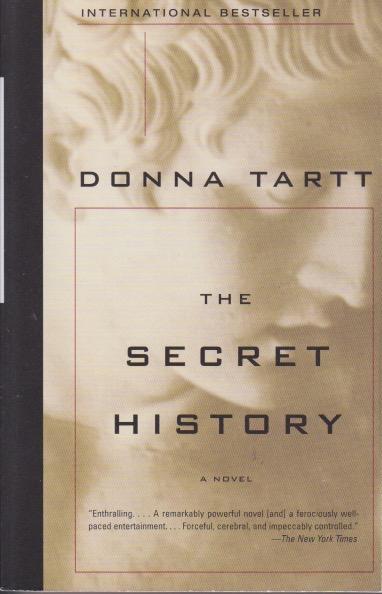
It could be that I’m not smart or sophisticated enough. Or maybe I’ve just lived a sheltered existence, although I grew up with an alcoholic parent and among a blue-collar drug culture. Despite this, I attended a “preppie” liberal arts college, but it wasn’t in Vermont. All of which is to say I had a difficult time getting into Donna Tartt’s The Secret History. There may be spoilers here, so if it’s on your reading pile, maybe wait to read this. Then tell me if you don’t agree. So here goes. The narrator, a perhaps unreliable Richard, is from a working-class dysfunctional family (check). He attends a liberal arts college on scholarship (check). It’s modeled on Bennington (the checks start stopping here). There he works his way into an exclusive group of five highly intelligent students in a private study Greek curriculum (this is also a partial check).
The days are filled with intensive work in Greek and the nights with alcohol and drugs and cigarettes. So many cigarettes. I found myself wondering how such highly intelligent students accomplished so much when they were stoned all the time outside of class. In any case, with two of the now six students not present—including Richard—they accidentally kill a man during a Bacchanal. Their professor covers for them. Then the other excluded student finds out and begins blackmailing the four. Like the rest of them he’s fond of booze and he begins to let slip what he knows. Spoiler alert: so they kill him. This is followed by more drugs and alcohol and when the professor finds out he simply leaves his tenured post to do something else. A rift develops in the remaining five that ends—another spoiler—the way dark academia often does, with a suicide.
Overall the story is captivating. Overdone on the substance use and abuse, but it does keep you engaged, once you get through the first hundred pages or so. I like dark academia, but I also like characters with whom I can sympathize. Like Richard, I’d gone to what was at the time a selective college from a working class family. There was drinking even at the notoriously dry Grove City College, and there were drugs. Perhaps those from elite families indulged. I hung out with scions of middle-class families (I didn’t know anyone else that was poor) and they didn’t spend their hazy nights under controlled substances. Having been a professor at a gothic school, and having studied Classics-adjacent, though, I found much of this hard to believe. It’s a book that becomes better upon reflection than in the actual reading. Still, I’m sure that I didn’t get it because I’m not sophisticated enough.
